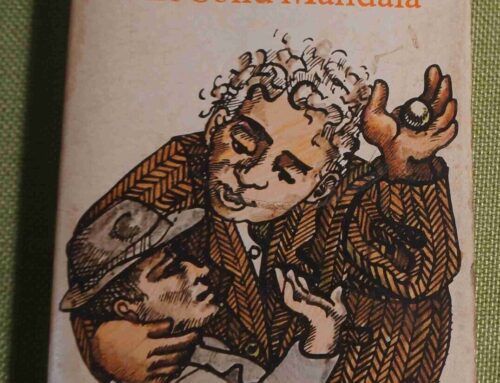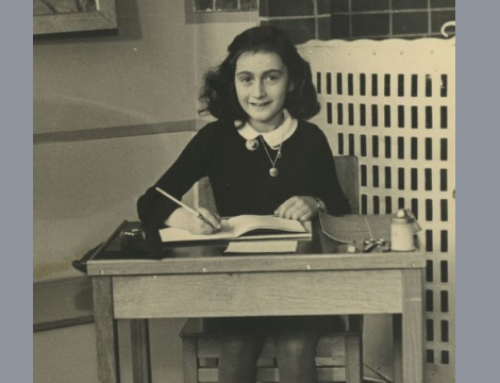Popeye Never Told You by Rodney Hall is a brilliant and original memoir of a little boy’s life in England during the Second World War. Rod is five when his story begins, and nine when it finishes, when the war ends. It is original because it is told in the child’s voice, without any attempt to give a coherent and connected narrative. Rather, It is a series of anecdotes, with minimal punctuation. Each one ends with a comma, and mostly, the next one begins with ‘and’ or ‘but’. This sounds odd, but it works, because this is how a child thinks and talks. Or at least, the writing convinces you that this is how a child thinks and talks. It seems entirely natural. I am in awe of how the author manages to project himself back into a young boy’s mind and heart, and bring him and his family to life on the page.
The anecdotes are varied, always amusing, delightful, sometimes touching. They give us, in glimpses, snatches of daily life in a 2-bedroom flat above a garage; their ‘yard’ is the flat rooftop, in a village where air-raid sirens often send everyone scurrying into shelters, or if there is not time, Rod’s family (his mother, sister and brother) huddle under the piano. Bombers fly over from time to time, and one day, an incendiary blomb sets fire to the shed that belonged to the garage. Rod’s father died when he was six months old, and now and then, a single sentence in italics is his message, perhaps in writing, perhaps just in his head, to his father.
can you see me from up in heaven?
And later,
I just pretend to be good
The children’s mother works and when they are not at school, they look after themselves. Mike, the older boy, is several years older than Rod, and mostly, he looks after his brother and sister, while still doing the things that older boys like to do. Often, they get into scrapes together, like when they decide to catch a train to the next station.
and because Gran gave Mike sixpence for mending her spectacles and because we have another fourpence between us and because thats enough to buy three half-singles to Stonehouse with a penny left over we decide to go,
They venture into the first-class carriage and are caught by the inspector. They get off at the next station and walk back.
‘stop grizzling’ Mike says ‘this is a Forced March and winning the war depends on us, because weve got the secret code so we have to keep in step like a proper army’
no one dares to say anything about Mum getting worried
I could quote from every page in this delightful book. The background of the war, the mother’s tender love for her children, the strain of being a single parent manifesting in frequent headaches, sometimes migraine, and the absence of a father for the little boy who has no memory of him, give the story depth and poignancy.
I’ve read no other memoir like it. Having written part of my first memoir in my child’s voice, I find this story perfect in its own unique way.




